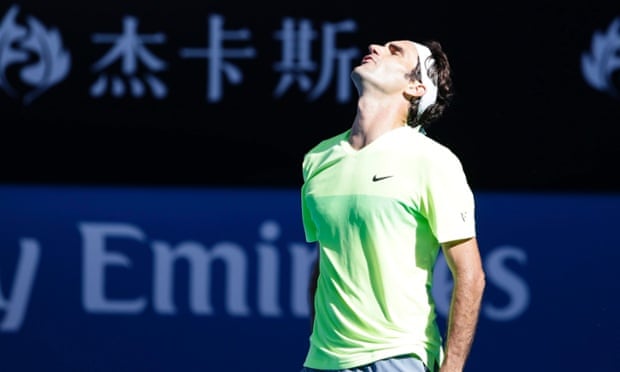
Roger Federer, arguably one of the best that has ever played the sport. But on Friday, Federer was shockingly knocked out by Andreas Seppi of Italy in the third round of the Australian Open. An opponent whom Federer has never lost in the previous 10 meetings. A player who has only manage to win only one single set out of the 10 matches they played together made this defeat even more miserable for Federer.
Perhaps this defeat was even shocking the fact that he started off the year brightly by beating Milos Raonic, a top 10 ranked player in the world to win the Brisbane title. Despite not winning any majors in 2013, he ended the year with a great note by winning the Davis Cup, ATP titles wins in Basel and Shanghai and reaching the finals of the ATP Tour Finals. Everything seems to look great for Federer leading up to the Australian Open until the lost.
The four majors are always the platform where top players bring their A game to the courts. But believe or not, losing in the early rounds of a major are not something new to Federer. Since his last major win in the 2012 Wimbledon, Federer has been defeated by three other lower-ranked opponents in grand slam tournaments: S. Stakhovsky (Wimbledon 2013), T Robredo (US Open 2013), and E Gulbis (French Open 2014). But this defeat to Seppi will be one of the most devastating lose in his career given the excellent record he has in Australian and against Seppi.
Federer’s best chance to win a grand slam still remains in Wimbledon. His game works best on the grass courts. That is why he has the most success in Wimbledon, having won there seven times. Federer is going to be 34 years old come this August. To have a shot of winning this year’s Wimbledon, Federer will need to manage his schedule well. An obvious decision is to cut down the time he spent on the clay which is his weakest surface to give him more time to prepare for Wimbledon. Deep down in his mind, he knows that he has no chance of winning the French again. When Murray won the Wimbledon in 2013, he didn’t play the French citing a back injury. But one would know that the decision to withdraw for Roland Garros is to give him more time to prepare for the Wimbledon. Perhaps Federer could look into this example to make some necessary arrangement to his schedule.
The serve-and-volley will always be a major weapon in Federer’s game and he recognized it. That is why he went out and get Stefan Edberg who was one of the finest serve-and-volley player in tennis to be his coach in early 2014. His decision has been working well with him and he should stick with it going forward. Federer will also need to do what he’s best at doing: move forward into the net more often and challenge his opponent to hit a perfect passing shot. But Federer definitely needs more than that to win. Apart from making adjustments to his schedule, Federer will definitely need to work on winning points off shorter rallies. Obviously, working on his return game will help him to shorten the rallies. He should take more chances on his opponent’s second serve, something he hasn’t been doing very well lately. With the shorter bounce of the grass court, taking a bigger gamble in shortening rallies will pay off greatly on this surface.
The world will continue to watch Roger Federer playing on a tennis court for a couple more years. At the moment, we haven’t seen any signs from him signalling a retirement is imminent. But as time passed by, the window to win his 18th grand slam will gradually becomes smaller and smaller and Wimbledon will still be his perfect hunting ground for his quest for another major.
Comments
Post a Comment